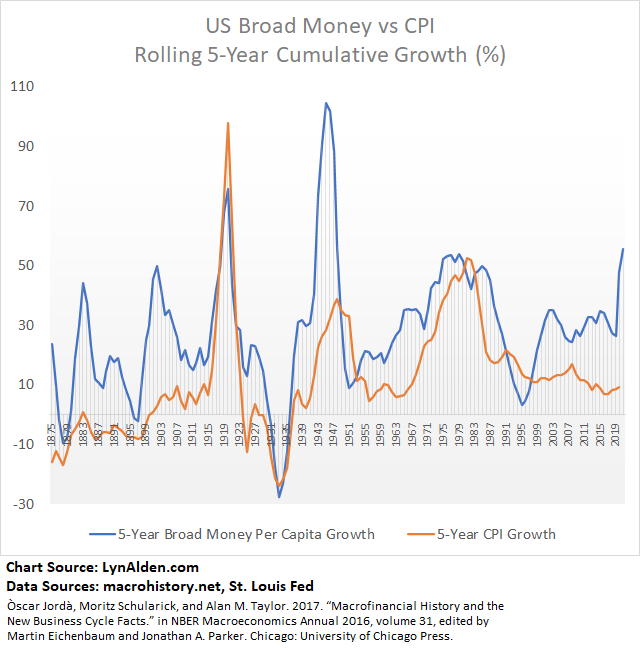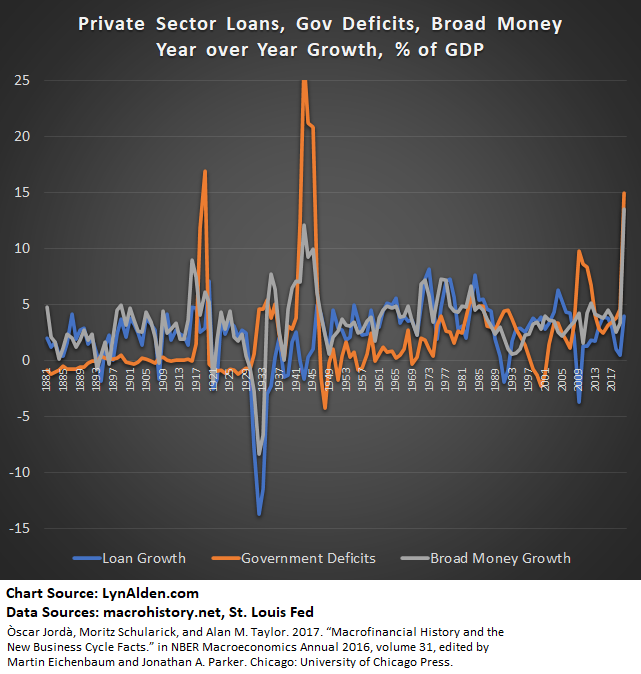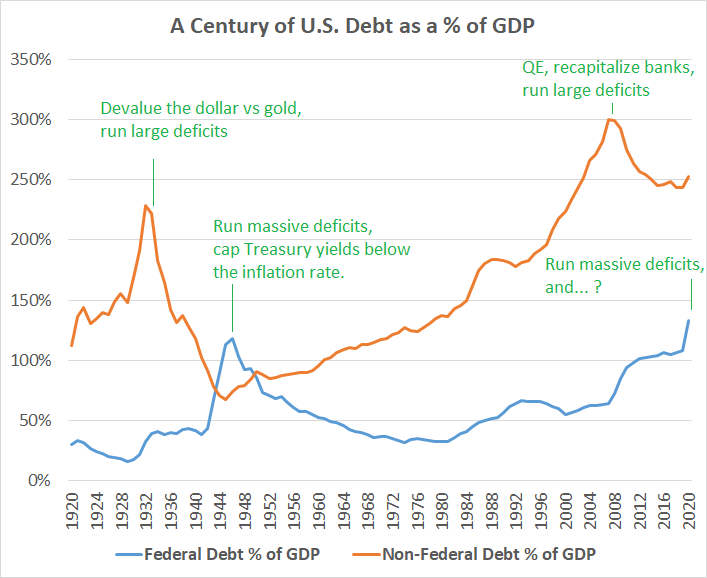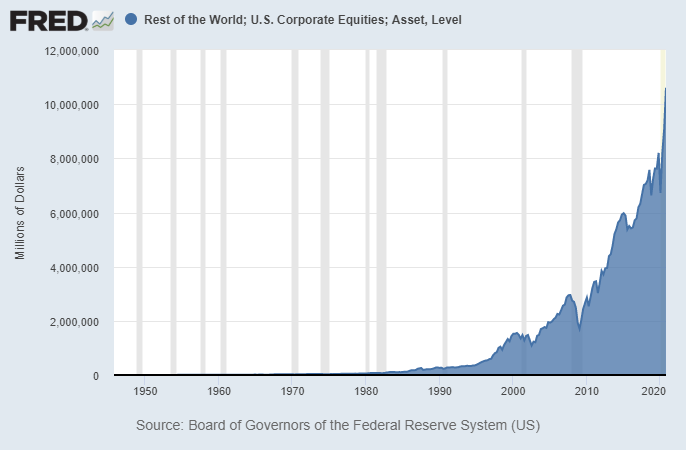
All the folks who were tweeting out year-over-year M2 growth rate charts several months ago aren't tweeting them anymore, since the charts are less sensational, so I'll do it.
M2 YOY % change is down to about 13%, from a peak of 27%.
M2 YOY % change is down to about 13%, from a peak of 27%.

I highlighted this effect since last year, where the rate after the crazy March/April 2020 period is a more modest "only 13%" growth rate. My chart from back then:

https://twitter.com/LynAldenContact/status/1338613444656975872

The rate of ongoing M2 expansion will largely depend on fiscal decisions.
As I've pointed out, this period is more like the 1940s, not the 1970s, and so money supply growth is primarily about fiscal spending, not bank lending.
lynalden.com/may-2021-newsl…
As I've pointed out, this period is more like the 1940s, not the 1970s, and so money supply growth is primarily about fiscal spending, not bank lending.
lynalden.com/may-2021-newsl…
Beware of accounts that only champion a niche specific view, like those who were expecting deflation back in 2020 and were overweighting bonds (lol), or those who were expecting hyperinflation by the end of the year (lol).
It's all about the nuance and the numbers.
It's all about the nuance and the numbers.
• • •
Missing some Tweet in this thread? You can try to
force a refresh



















